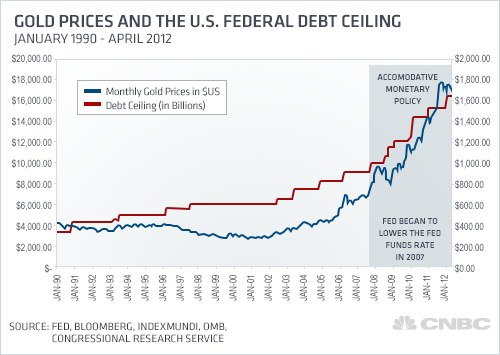The standard drivers of all commodities are, of course, supply and demand. However, the nation buying the most gold per person is India, whose economy has taken a pronounced swoon. To a lesser extent, the same is true for China. Reduced demand for gold therefore reduced the value of gold.
A less understood relationship driving the value of gold is the value of the dollar. With rising economic anxiety, investors worldwide have been buying dollars as a refuge of last resort, which drives up the value of the dollar. No matter what happens to America, the belief is that dollars will still command respect and retain value overseas. When the dollar rises in value, the value of gold decreases in this country.
When America resolves its current fiscal crisis and when Europe resolves its current financial crisis and when it is more clear that China is resuming its economic growth, the dollar will fall in value, and the price of gold should increase.
However, there is another relationship that should be examined. Take a look at this graph:

